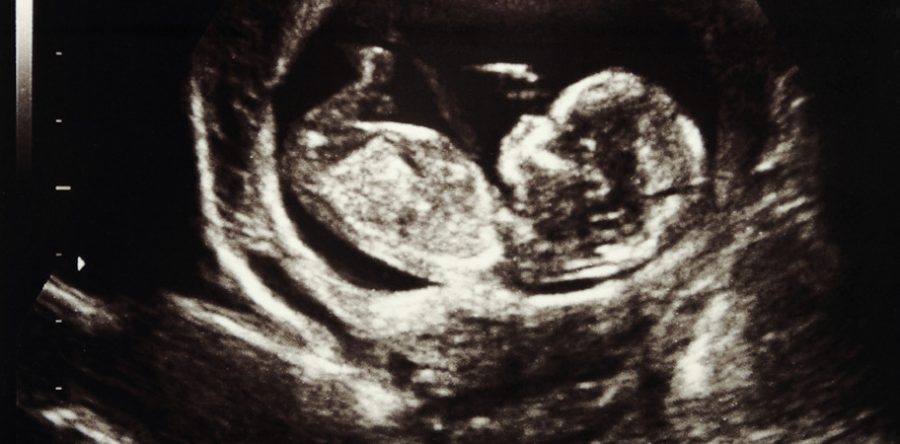In a March 13, 2000, article in The Nation defending third trimester abortion, pro-abortion activist Karen Houppert makes a striking concession: most pro-abortion feminists “don’t disagree” that a preborn baby is a person.
Houppert wrote her article in response to one by ‘less extreme’ abortion supporter Gregg Easterbrook, who wrote that third trimester abortions should be illegal. To support his argument, Easterbrook said that by the third trimester, the brainwave patterns of babies in the womb are identical to those of newborns. Easterbrook says the “hopelessly confusing viability standard should be dropped in favor of a bright line drawn at the start of the third trimester, when complex fetal brain activity begins.” He claims these brainwaves are a “sign of formed humanity” that prove the baby’s “personhood.”
Using a completely arbitrary standard, Easterbrook wants to base abortion laws on brain development. He feels that the brain is only developed enough for the child to have a right to life in the third trimester. And yet, this is well after the child can survive outside the womb.
Even this restriction is too much for Houppert. She says:
It is at this point that feminists who’ve been around the block once or twice might fight the temptation to take this earnest neoliberal by the hand and lead him gently back to the point of contention: What does it mean that this fetus acquires “personhood” inside the body of another?
Memo to Gregg: Yours is that same tiresome argument about when life begins. Randall Terry [founder of Operation Rescue] and his minions call them the “preborn.” You’ve simply modernized, adding the intellectual’s imprimatur by invoking science to define “signs of formed humanity.”1
Then Houppert says:
But get this. Most of us feminists don’t even disagree with you. We might quibble with the notion that “personhood” is bestowed at precisely 24 weeks when the brain waves are first detected on an EEG, because, in general, when a pregnancy is a welcome one, we women tend to bestow “personhood” immediately. (We change the way we eat; “You’re eating for two now.” We pass around sonograms and coo at those 10 little “signs of formed humanity.” We mourn when we miscarry.)2
Of course, brainwaves are first detected at 6 1/2 weeks, not 24 weeks.
READ: First trimester babies aren’t blobs of tissue — they’re amazingly complex
Pro-lifers have often observed that many women, even pro-abortion women, believe that their preborn babies are human beings, at least when they are wanted. As former abortionist Dr. Steve Hammond, who is now pro-life, points out:
[W]hat does a woman say after she has a pregnancy loss? She says, “I lost the baby,” not “I lost the fetus.” This is because the experience of every woman is that if she is pregnant, then she is carrying a baby.3
Houppert admits that women see their preborn children as babies – when they want them. She adds:
Our jaded feminist gives a weary nod and says, “Remember, this fetus is being carried inside a woman’s body. The question,” she reminds him, “is not, “When does life begin?” But, “Can it ever be moral for a woman to be pregnant against her will?”4
According to Houppert, when life begins doesn’t matter. The humanity of the baby doesn’t matter. All that matters is the woman’s desire to no longer be pregnant.
Instead of arguing that a preborn child isn’t a baby, some abortion proponents argue that it is ok to kill a baby. In this view, the child has no rights. Only the strong have rights; small and helpless preborn babies are at the mercy of people who have already been born.
- Karen Houppert “The Meaning of Life” The Nation 270, March 13, 2000 P7
- Ibid.
- Steve Hammond, MD and Emily LaBonte The Christian and Abortion: A Nonnegotiable Stance (Grand Rapids, Michigan: Credo House Publishers, 2019) 30, 31
- Karen Houppert “The Meaning of Life”
“Like” Live Action News on Facebook for more pro-life news and commentary!







